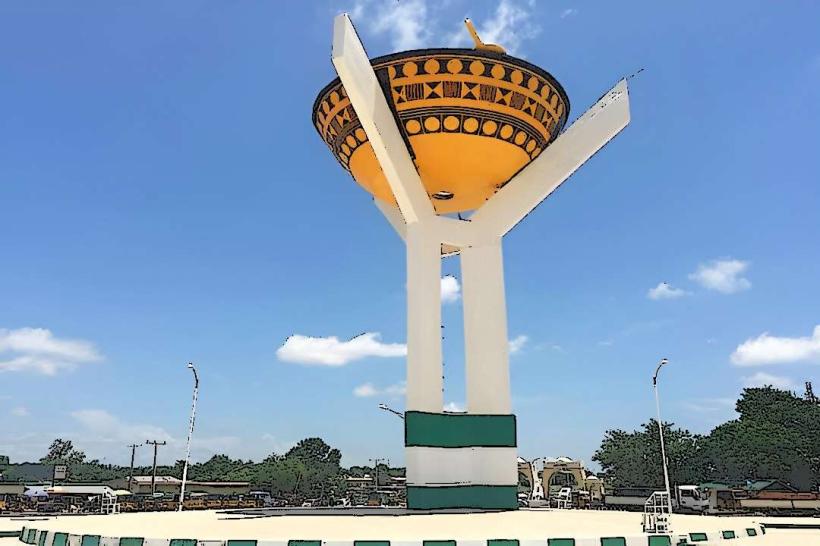Information
City: AdamawaCountry: Nigeria
Continent: Africa
Adamawa, Nigeria, Africa
Adamawa is a strategic border state in northeastern Nigeria, serving as a primary agricultural and livestock hub for the Lake Chad Basin. It is situated on the Upper Benue River, sharing a 160-kilometer international boundary with the Republic of Cameroon to the east.
Historical Timeline
Adamawa was founded as the Fombina Emirate in 1809 by Modibbo Adama, a lieutenant of the Fulani jihadist Usman dan Fodio. The territory transitioned through German and British colonial governance before being established as Adamawa State in 1991. The primary event shaping its current urban form was the mid-19th-century expansion of Jimeta as a colonial river port, which superseded the historic capital, Yola, in commercial importance.
Demographics & Population
The state population is estimated at 5,100,000 for 2026, with the Yola-Jimeta metropolitan area housing approximately 620,000 residents. The top three ethnic demographics are the Fulani, Bwatiye (Bachama), and Mumuye. The median age is 19.2 years.
Urban Layout & Key Districts
The capital is a "twin city" separated by 8 kilometers of wetlands and the Benue River. Jimeta (North) serves as the modern administrative and commercial center, while Yola (South) remains the traditional seat of the Emirate. Key districts include the Administrative Area in Jimeta and the Old City (Palace District) in Yola.
Top City Landmarks
The Lamido’s Palace (Yola)
American University of Nigeria (AUN) Campus
The Great Mosque of Yola
Jimeta Bridge (Cross-Benue Link)
Jimeta Central Market
Transportation Network
Intra-city transit relies on a high-density network of "Keke Napep" (tricycles) and shared taxis. There are no metro or tram systems. Ride-sharing is limited; local apps have low penetration compared to independent tricycle hire. Official taxis are typically unmarked or use standard yellow/green state plates. Traffic density is moderate, peaking at the Jimeta-Yola bypass during market days.
Safety & "Red Zones"
Security remains volatile due to regional insurgency risks. The northern local government areas (Madagali, Michika) are designated Level 4 (Do Not Travel) zones. Public gatherings in Jimeta and Yola are occasionally cancelled by the state government due to credible intelligence of potential attacks. Travelers should avoid nighttime transit and remain vigilant in crowded markets.
Digital & Financial Infrastructure
The average internet speed is 25-33 Mbps following 2025 infrastructure investments. Primary carriers are MTN, Airtel, and Glo. Card acceptance is moderate in formal hotels and supermarkets but low in local markets. ATMs are concentrated in the Jimeta Business District; cash (Naira) remains the primary transaction medium.
Climate & Air Quality
Temperatures range from 15°C during the Harmattan (December–January) to 42°C in the pre-monsoon heat (March–April). Air quality is frequently "Unhealthy" (AQI >140) due to Saharan dust and seasonal harmattan pollution; the state government issued a 2026 advisory for residents to wear face masks outdoors.
Culture & Social Norms
Tipping is not mandatory but 5-10% is customary for service staff. Greetings are formal; younger individuals often bow slightly to elders. Dress codes are highly conservative; modest attire covering shoulders and knees is required in public. Alcohol is regulated and generally restricted to specific "hotels" or non-Muslim enclaves.
Accommodation Zones
Jimeta (near the Airport): Recommended for logistical access to government offices and the university.
Yola Town: Recommended for cultural proximity to the Emir’s Palace and historical sites.
Local Cost Index
1 Espresso (Nescafé/Instant): ₦1,800 ($1.15 USD)
1 Standard Lunch (Jollof/Pounded Yam): ₦5,200 ($3.30 USD)
1 Keke Napep Drop: ₦500 ($0.32 USD)
Nearby Day Trips
Sukur Cultural Landscape (UNESCO Site): 290 km (Access limited by security)
Numan River Confluence: 60 km
Kiri Dam (Shelleng): 85 km
Lamurde Hot Springs: 95 km
Facts & Legends
Local lore speaks of the "invisible market" of the Koma people in the Jada hills, who remained undiscovered by the Nigerian government until 1986. Historically, Yola was the only major northern city where the British Royal Niger Company established a permanent river station before 1900, leading to a unique architectural blend of Sudanese and Victorian styles in the old riverside warehouses.


